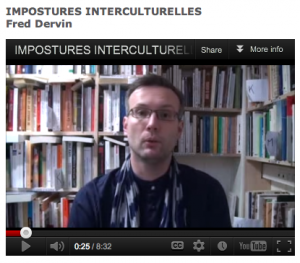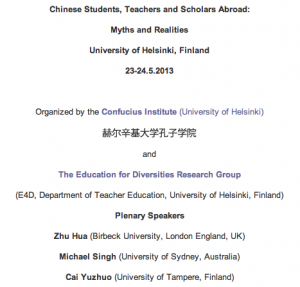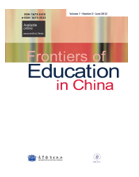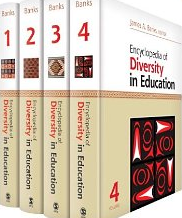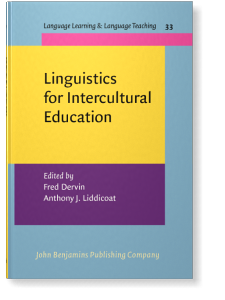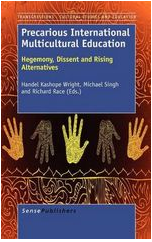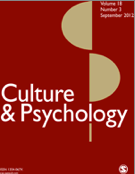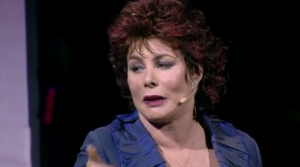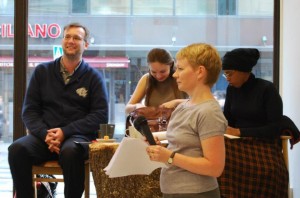International conference: Chinese Students, Teachers and Scholars Abroad: Myths and Realities University of Helsinki, Finland 23-24.5.2013
New research article about reverse orientalism (Dervin-Gao)
“Happy Chinese” or kuaile hanyu is an educational melodrama produced by the Chinese TV channel CCTV in 2009. Aiming to improve foreign learners’ Chinese language skills, the plot revolves around Susan, an American, staying with her former Chinese classmate’s family. “Happy Chinese” proposes both language and cultural learning. In this paper, the authors are examining the first seven episodes marking Susan’s arrival in China for the Spring Festival. Basing the study on a postmodern and critical approach to the “intercultural,” as well as on a critical view towards Orientalism and Occidentalism, the authors are interested in how the programme constructs the arrival of the American and the way she is perceived and represented by the “locals.” The authors are also looking into what the Chinese family teaches Susan about being Chinese and, at the same time, the tensions that a certain tendency to “keep up appearances” and appear “real Chinese” before her trigger in the family, across generation and gender. The research tools used to analyze the data are derived from discursive pragmatics.
Yourope: Documentary about Finnish Teacher Education
Finnland, Land der Streber. Hier können Schüler besser lesen und rechnen als alle anderen in Europa, das zeigt alle drei Jahre wieder die Pisa-Studie. Der Grund dafür: die besten Lehrer von ganz Europa – so sehen die Finnen das zumindest selbst. Das fängt schon bei der Auswahl an – nur sieben Prozent aller Bewerber werden zum Lehramts-Studium an der Uni zugelassen.
Encyclopedia of Diversity in Education (James Banks ed.)
With 695 signed entries with cross-references and recommended readings, the Encyclopedia of Diversity in Education, Four-Volume Set, in both print and electronic formats, presents research and statistics, case studies and best practices, policies and programs at pre- and post-secondary levels. Diversity is a worldwide phenomenon, and while most of the entries in the Encyclopedia will focus on the United States, diversity issues and developments in nations around the world, including the United States, are intricately connected. Consequently, to illuminate the many aspects of diversity, this volume will contain entries from different nations in the world in order to illuminate the myriad aspects of diversity. From A-to-Z, this Encyclopedia will cover the full spectrum of diversity issues, including race, class, gender, religion, language, exceptionality and the global dimensions of diversity as they relate to education. There will also be an appendix consisting of a chronology of significant events related to diversity. This four-volume reference work is the definitive reference for diversity issues in education in the around the world.
Pre-announcement: Linguistics for Intercultural Education
Linguistics for Intercultural Education
New book: Precarious International Multicultural Education (Wright, Singh & Race (eds)
Multiculturalism and multicultural education are at a paradoxical moment. There is work that continues as if the multicultural hegemony was still intact and on the other hand work articulated as if multiculturalism was decidedly passe. The essays in this collection will be of considerable interest to academics, policy makers and students of both multiculturalism and multicultural education principally because they touch on both perspectives but concentrate for the most part on the thorny problematic of the workings of multicultural education in its present precarious moment. Given the renewed, urgent attacks in various western countries, the cottage industry of “death of multiculturalism” texts and the rise of the interculturalism, transnationalism, diaspora alternatives, is multiculturalism dying? Are the ends of multiculturalism- the management or celebration of diversity; representation and recognition for all in society; creation of just and equitable communities at the global, national and local school classroom levels- better theorized and realized through the ascendant alternatives? Representing the precarious moment in Canada, Ireland, Australia, the United States and the United Kingdom, the essays in this collection address these questions and both depict and trouble hegemonic multicultural education and contrast it with its supposed successor regimes.
Click on cover to read introduction
Culture: An Ephemeral Notion of Universal Importance
Great talk about mental illness
“Diseases of the body garner sympathy, says comedian Ruby Wax — except those of the brain. Why is that? With dazzling energy and humor, Wax, diagnosed a decade ago with clinical depression, urges us to put an end to the stigma of mental illness”.
Great talk about how to avoid hierarchy between diversities!

